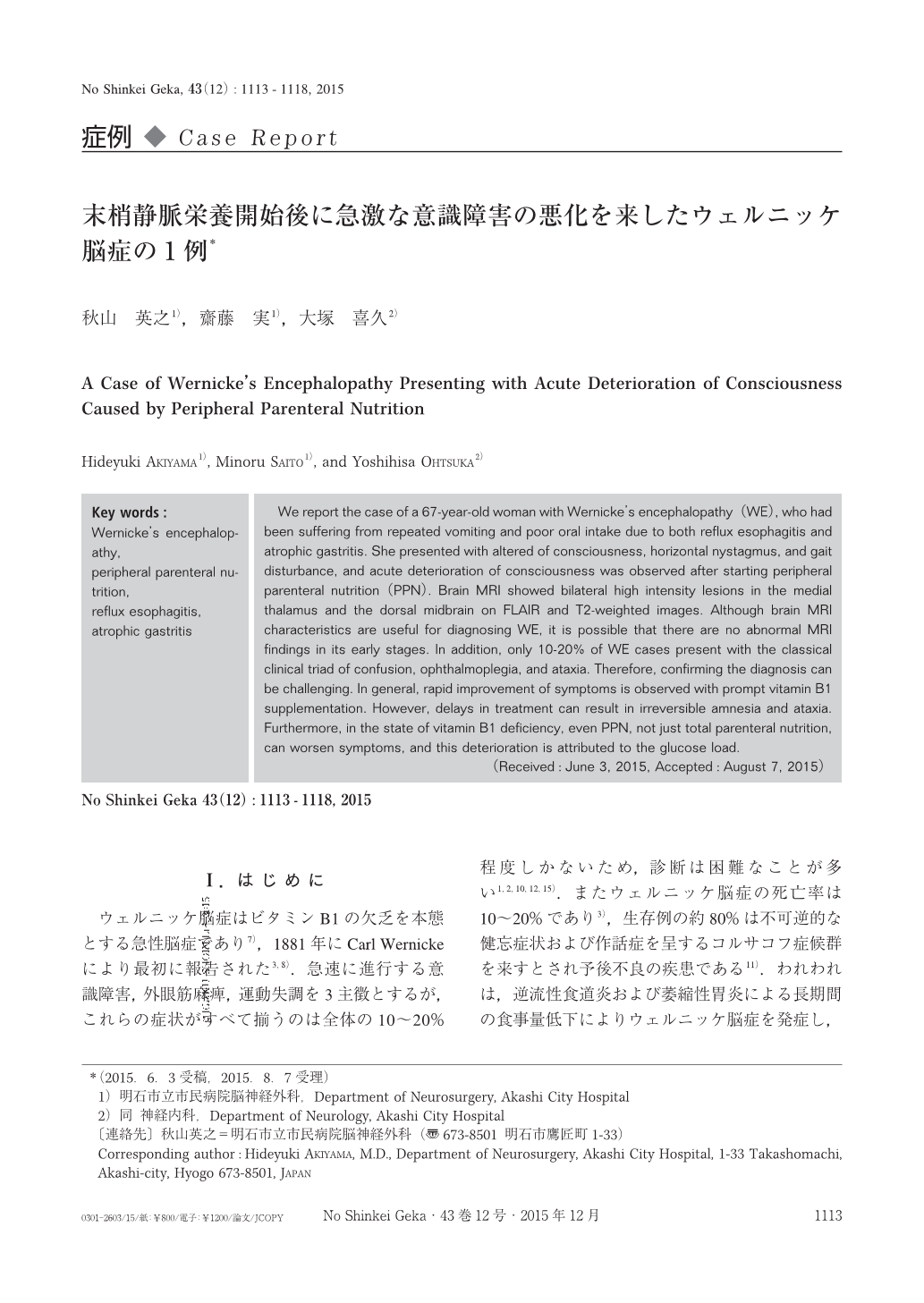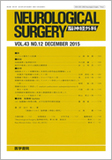Japanese
English
- 有料閲覧
- Abstract 文献概要
- 1ページ目 Look Inside
- 参考文献 Reference
Ⅰ.はじめに
ウェルニッケ脳症はビタミンB1の欠乏を本態とする急性脳症であり7),1881年にCarl Wernickeにより最初に報告された3,8).急速に進行する意識障害,外眼筋麻痺,運動失調を3主徴とするが,これらの症状がすべて揃うのは全体の10〜20%程度しかないため,診断は困難なことが多い1,2,10,12,15).またウェルニッケ脳症の死亡率は10〜20%であり3),生存例の約80%は不可逆的な健忘症状および作話症を呈するコルサコフ症候群を来すとされ予後不良の疾患である11).われわれは,逆流性食道炎および萎縮性胃炎による長期間の食事量低下によりウェルニッケ脳症を発症し,末梢静脈栄養開始後に急激な意識障害の悪化を来した症例を経験したので文献的考察を加え報告する.
We report the case of a 67-year-old woman with Wernicke's encephalopathy(WE), who had been suffering from repeated vomiting and poor oral intake due to both reflux esophagitis and atrophic gastritis. She presented with altered of consciousness, horizontal nystagmus, and gait disturbance, and acute deterioration of consciousness was observed after starting peripheral parenteral nutrition(PPN). Brain MRI showed bilateral high intensity lesions in the medial thalamus and the dorsal midbrain on FLAIR and T2-weighted images. Although brain MRI characteristics are useful for diagnosing WE, it is possible that there are no abnormal MRI findings in its early stages. In addition, only 10-20% of WE cases present with the classical clinical triad of confusion, ophthalmoplegia, and ataxia. Therefore, confirming the diagnosis can be challenging. In general, rapid improvement of symptoms is observed with prompt vitamin B1 supplementation. However, delays in treatment can result in irreversible amnesia and ataxia. Furthermore, in the state of vitamin B1 deficiency, even PPN, not just total parenteral nutrition, can worsen symptoms, and this deterioration is attributed to the glucose load.

Copyright © 2015, Igaku-Shoin Ltd. All rights reserved.


